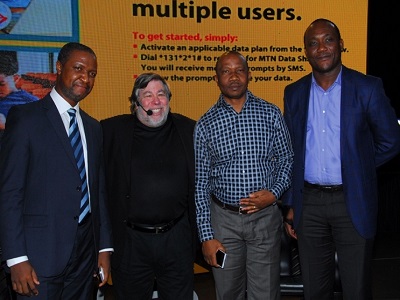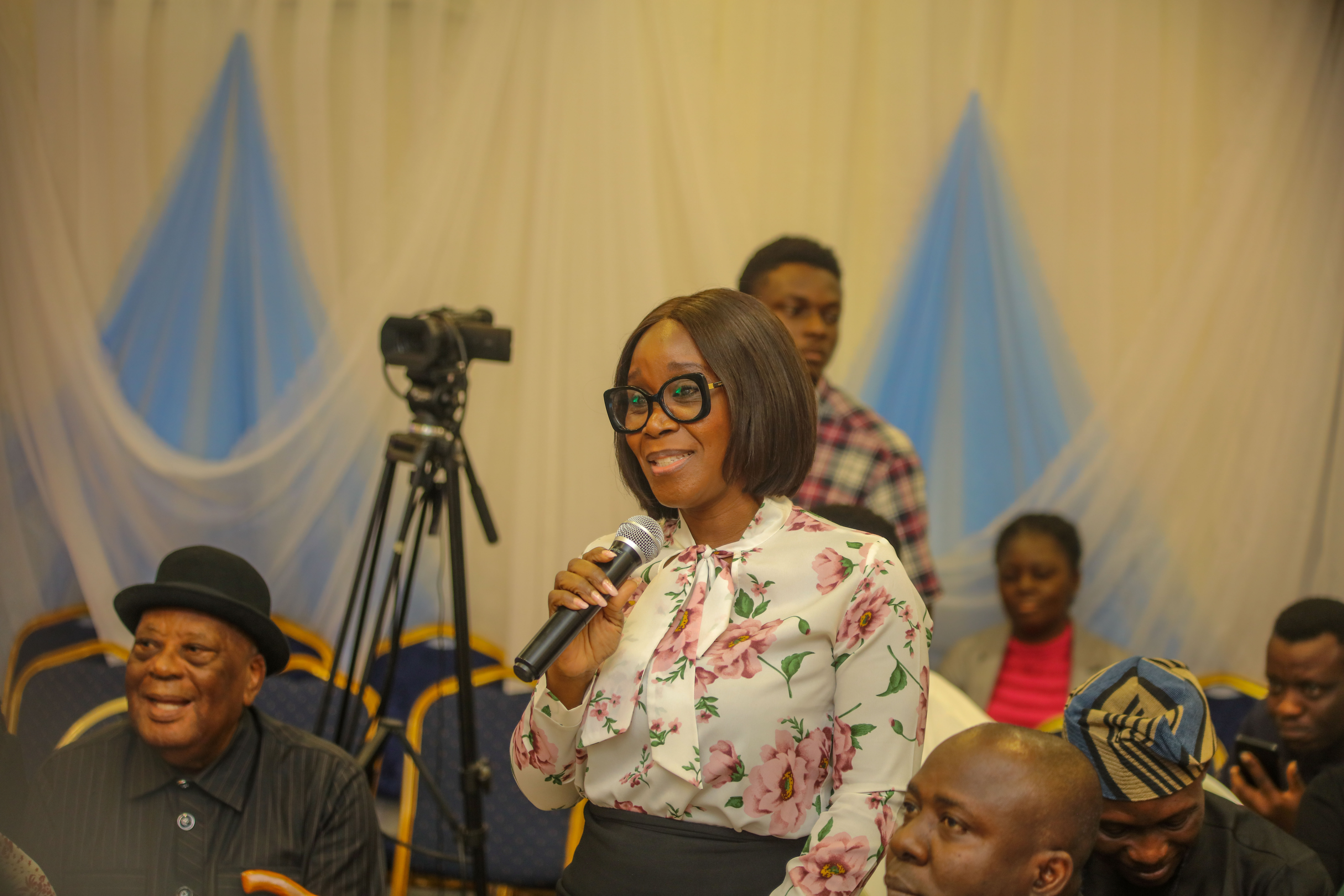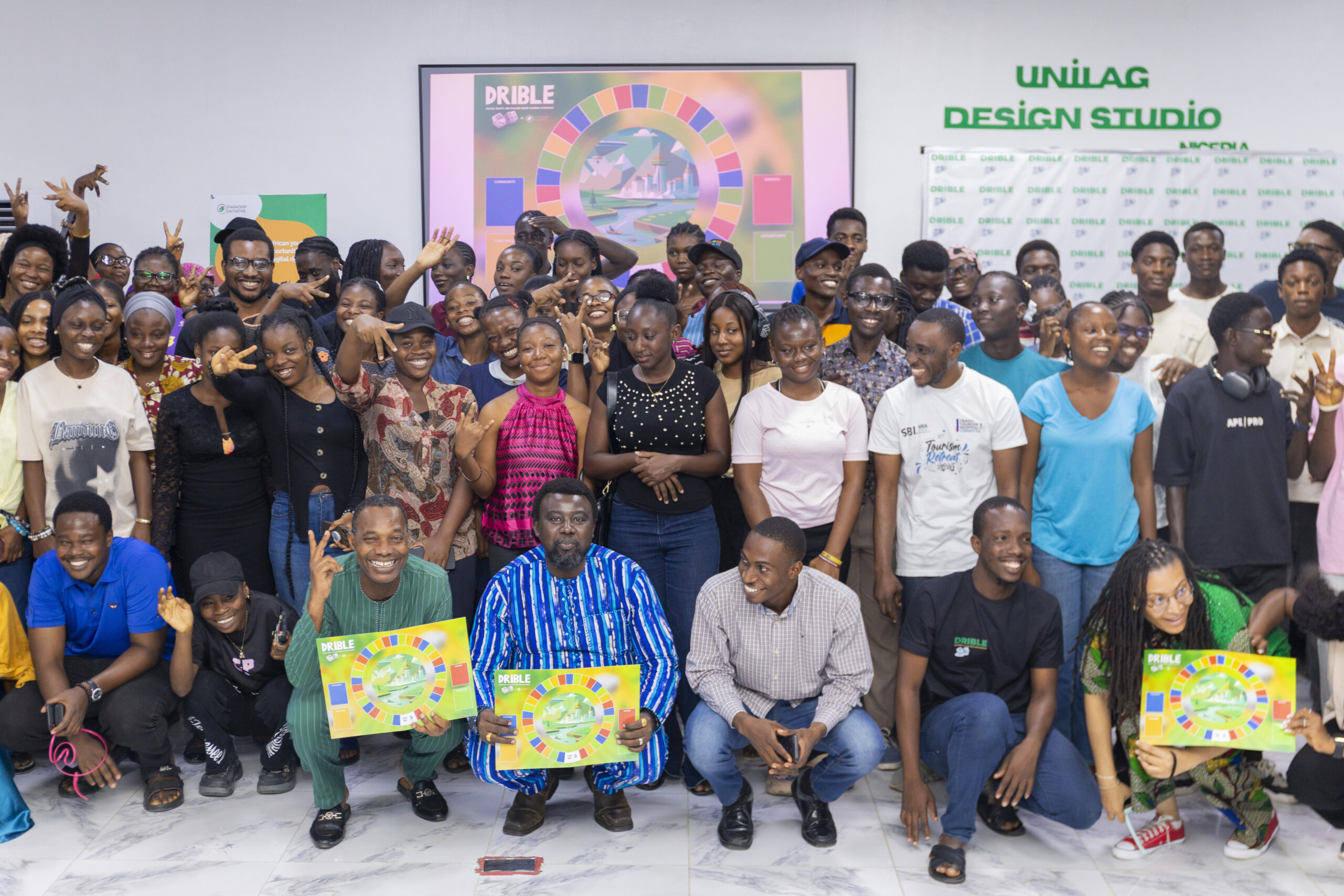Telecom
Apple Co-founder Challenges Young Nigerians on Innovative Mentality

Silicon Valley veteran and co-founder of Apple Computers, Steve Wozniak, has charged Nigerian youths to develop a mentality of building new things as a way of innovating and accelerating the country’s technological growth.
Wozniak gave the advice while speaking at the 2014 edition of the annual leadership seminar organized by Nigeria’s leading Technology Company, MTN.
Wozniak addressed a select and diverse group of chief executive officers and enterprising young people drawn from both the public and private sectors in Lagos and Port Harcourt.
“Companies tend to want to hire people who already have a lot of experience on the exact products they are working on. But I say it is much better to find very smart people that are able to look at a new thing they have never worked with before and write the book themselves rather than reading the book on how it is done,” said Wozniak, who has been credited with revolutionizing the personal computing space.
Wozniak, described as one of “Silicon Valley’s most creative engineers,” advised the government to find the formulae to getting rid of poverty and engender equality for the citizenry whilst getting rid of corruption.
He also added that, for the nation to replicate the American Silicon Valley experience, there was need to have strong, tactical universities which had to be well funded and research driven.
On the future of technology he said: “Get into technology, the devices of the day, be a part of the future. Don’t hold back and say, ‘I’m just going to live life the old way because it worked in the past’. You’ve got to be a part of the future, if you are going to change it and affect other people’s lives positively.”
Speaking on the choice of Steve Wozniak, Mr. Larry Annetts, chief marketing officer, MTN Nigeria, said this was informed by the need to tap into his global insights and counsel in the areas of innovation and creativity. “Steve is the first ever technology inventor and innovator to take a place on the leadership podium,” said Annetts: adding, “Nigeria is a country bustling with raw talent, talent which needs to be systematically harnessed in order to unleash true economic value and we have no doubts that his visit would help propel our youth into action”.
Wozniak’s pedigree as an inventor has been recognized by the technology industry.
In 1985, he was awarded the National Medal of Technology by the United States President – the highest honour that the US bestows on the country’s leading innovators.
And in 2000, he was inducted into the Inventors Hall of Fame and awarded the Heinz Award for Technology, the Economy and Employment for “single handedly designing the first personal computer and directing his lifelong passion for mathematics and electronics toward lighting the fires of excitement for education in students and their teachers.”
He has received many honorary degrees from different leading universities across the world.
Under the MTN Leadership Forum, the company has previously sponsored seminars which featured globally renowned personalities such as Les Brown, Chris Gardner, David Plouffe, Farrah Gray and most recently, Dr. Ram Charan in a bid to inspire Nigerians and help build local capacity for economic growth and development.
Telecom
MTN’s ₦31.75Bn Investment in Health Lauded at Arthur Mbanefo Lecture

MTN Foundation has been spotlighted as a model for private sector-driven healthcare development in Nigeria, following commendations at the 6th Arthur Mbanefo Lecture held at the University of Lagos, Akoka.

Themed “A Healthy Nation is a Wealthy Nation: The Role of Impact Investments and Sustainable Financing in Nigeria,” the lecture featured Dr. Tolulope Adewole, Managing Director of NSIA Advanced Medical Services Limited (MedServe), as keynote speaker.
Dr. Adewole praised the Foundation’s strategic investments, noting that MTN commits 1% of its profit after tax annually to development sectors. “They’ve invested ₦31.75 billion, reaching over 32 million Nigerians. Though only 25% went to health, it accounted for 51% of all lives impacted. That’s catalytic,” he said.
He cited MTN’s dialysis centre programme as a transformative intervention for patients with kidney disease, and highlighted community-focused initiatives like the Y’ello Doctor mobile scheme and ‘What Can We Do Together’ (WCWDT) programme, which revitalised 164 Primary Healthcare Centres, including 44 in 2024 alone.
Executive Director of MTN Foundation, Odunayo Sanya, reflected on the COVID-19 pandemic’s exposure of systemic health vulnerabilities. “When COVID hit, we realised a health emergency is also an economic and social emergency,” she said.
Sanya revealed that of the 52 PHCs remodeled in 2024, only one had clean water. “I’m not a doctor, but I know you can’t live a good life without clean water,” she added, reaffirming the Foundation’s commitment to bridging healthcare gaps in underserved communities.
Telecom
PIN to Empower 20 Million Youths with New Digital Rights Board Game

Hundreds of university students across Africa are set to benefit from a new gamified learning experience on digital rights and inclusion launched by the leading pan-African non-profit organisation, Paradigm Initiative (PIN).

The Digital Rights and Inclusion Board Learning Experience (DRIBLE) is a game developed by Paradigm Initiative with support from the Open Society Foundations (OSF). The custom-designed board game provides young individuals with a fun and engaging entry point into digital rights and inclusion conversations, training sessions and storytelling tools.
The board game aims to build digital literacy, deepen understanding of online safety, and introduce young individuals to the organisation’s tools of impact. Currently being piloted in three universities: University of Lagos, Nigeria, the Catholic University of Eastern Africa (CUEA) in Nairobi, Kenya and the Dakar American University of Science and Technology (DAUST) in Dakar, Senegal, it will enhance interactions and create a holistic experience.
Speaking at the event launch at the University of Lagos, Nigeria, ‘Gbenga Sesan, Paradigm Initiative’s Executive Director, said: “PIN’s vision is to reach 20 million people through our Digital Inclusion and Digital Rights interventions. From Lagos, to Dakar, to Nairobi.. we will use the vehicle of our new Digital Rights and Inclusion Board Learning Experience (DRIBLE) which entails using gamification, training, multimedia materials, tools and other interventions to connect African youth with digital opportunities and protect their digital rights.”
‘Gbenga gave the keynote address on “Digital inclusion at PIN, our Past, Present and Future” and Nnenna Paul-Ugochukwu, the organisation’s Chief Operating Officer, said the goal of the learning experience would be instrumental in raising awareness of digital rights among the youth, building their capacity to address digital rights and inclusion issues in their communities. Prof. Olunifesi Adekunle Suraj shared a goodwill message with the students and other stakeholders.
Paradigm Initiative, which has been operational since 2007, started in a tiny cybercafe in Ajegunle, Lagos, Nigeria. Today, the organisation has expanded its wings to cover six African countries; Cameroon, Kenya, Nigeria, Senegal, Zambia and Zimbabwe, impacting the livelihoods of over 150,000 young Africans.
The launch of DRIBLE builds on the progress the organisation has made over the years in tackling the challenge of digital exclusion across Africa.
Paradigm Initiative’s tools of impact include Ripoti, a platform that enables individuals to report digital rights violations, Ayeta, a platform that provides digital security resources for stakeholders, more so human rights activists, defenders, journalists and other vulnerable groups, and the organisation’s latest short film, Whispers in the Wires.
Targeted at students, PIN rolled out a Campus Tour in the three universities on the continent starting July 15th, 2025.
Telecom
Meta Cracks Down on Fake Accounts, Deletes 10m Profiles

Meta, the parent company of Facebook, has intensified its crackdown on fake accounts and spam, announcing it removed over 10 million fake profiles and roughly 500,000 spam accounts in the first half of 2025.

The sweeping purge is part of Meta’s broader effort to combat impersonation, fake engagement, and content duplication, aiming to elevate authentic creators and improve the quality of content across its platforms.
In a blog post, Meta said: “We’re making progress. In the first half of 2025, we took action on around 500,000 accounts engaged in spammy behaviour or fake engagement. We also removed about 10 million profiles impersonating large content producers.”
Meta stressed that accounts which primarily repost or recycle content without meaningful edits will face penalties such as reduced reach and the loss of monetisation tools.
The company also warned that repeatedly sharing unoriginal content — whether videos, photos, or text — undermines the platform’s integrity by crowding out genuine voices and making it harder for new creators to grow.
To support authentic creators, Meta is rolling out new tools that automatically trace reposted content back to its original source. The company says this will help ensure rightful credit and give higher visibility to original posts.
“Pages and profiles that post mostly original content tend to enjoy wider distribution across Facebook. Simply stitching clips together or adding a watermark will no longer count as meaningful editing. Content that provides real value and tells an authentic story is likely to perform better,” Meta explained.
Creators are also being cautioned against uploading content that includes watermarks from other platforms. Such posts could see their reach restricted or lose monetisation privileges altogether.
As part of its latest update, Meta introduced post-level insights on the Professional Dashboard, allowing creators to monitor how individual posts perform. They can also check their Support Home screen to see if their content or earnings are facing restrictions.
In a parallel development, Google’s YouTube updated its monetisation guidelines, stating that content deemed mass-produced or excessively repetitive will no longer qualify for ad revenue. The announcement initially sparked concern among creators, who feared it was a blanket ban on AI-generated content. YouTube later clarified:
“We welcome creators using AI tools to enhance their storytelling, and channels that use AI in their content remain eligible to monetise.”
Both tech giants say these new policies are aimed at raising content standards and safeguarding genuine creators in a crowded and rapidly evolving digital landscape.

 Telecom3 days ago
Telecom3 days agoNCC Introduces N10m Licence Fee for Bulk SMS Service

 Telecom3 days ago
Telecom3 days agoMTN Nigeria Targets $1Bn Cloud Market with Largest Modular Data Centre

 General News3 days ago
General News3 days agoWoodhall Capital and Partners Launch ₦1.5Bn Fund

 E-Business3 days ago
E-Business3 days agoFirm Highlights Top Risks of Quantum Computing

 E-Financial2 days ago
E-Financial2 days agoZenith Banks Leads as 8 Banks Suffer N156Bn Impairment Charges

 Telecom3 days ago
Telecom3 days agoPAT Taps Osi as CEO

 General News3 days ago
General News3 days agoBurna Boy Distances Himself from Meme Coin, Labels Crypto as Fraud

 E-Financial3 days ago
E-Financial3 days agoAfrica Launches PAPSSCARD, First Pan-African Card Scheme
























